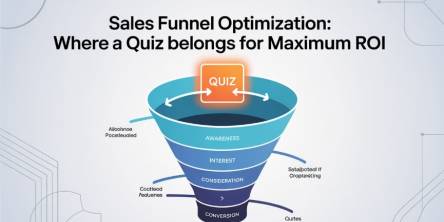Popular Factors That Shape Software Testing Strategies

The software has taken center stage and rightly so — after all, human existence has become so highly dependent on the digital realm. Given that, we need more and more such digital tools to help drive us forward in whatever it is we seek to do. To cut a long story short, we have come to depend on software quite a bit, and that, in turn, has put the spotlight squarely on things like software testing and quality assurance. While the layman may not think about software testing as much, for companies that make and offer software that runs the world, it is an integral part of the overall process. And given the role testing plays, rest assured that the tools, technologies, and strategies we use have evolved quite a bit as well.
And with that, so has the role software testing plays in the industry. Thanks to the access we now have to modern solutions, software testing now enables companies and testers to tend to essential requirements. It includes such as determining any errors, bugs, lags, gaps, or anything else that is not in sync with the project’s expectations and requirements. Besides all that, software testing now also helps companies make sure that the software they are about to offer to the market can indeed fulfill their target audience’s needs and gauge the product’s stability, among other things. Testing is vital to the process of building software. And if you want to get that right, it is essential that you understand the different factors that can affect your software testing endeavors. We have listed some of them here for your perusal.
- Planning: Much like you wouldn’t start a development project, or any project for that matter without a prior plan, one shouldn’t dive headfirst into software testing either. It is because the process of quality assurance is contingent on it as well as test estimation. So, when you set out to plan for software testing and set out some strategies, we highly recommend that you get the measure of things like cost, risk, the time required, human resources, and more. Doing this will help enhance efficacy significantly.
- Scale and complexity of the project: A crucial part of deciding your software testing strategy is the scale as well as the complexity of the software in question. It is because of the number of features, functionalities, and more. It necessitates a varying number and types of tests as well as different skills. And in addition to that, there is also the fact that every project type needs. It is with a clear plan of action and technologies as well.
- Methodology: The methodology you adopt for testing your software is critical seems like a redundant thing to say. We agree, but hear us out — the choice in this context has severe consequences for the overall outcome of the project, including its quality and productivity. So, pay careful attention to what you choose, and be sure to map it to your expectations and requirements.
- Expertise and skills: At the end of the day, it is the people in your testing team that will execute the strategy, plans, and everything else. Hence, the expertise and skills they bring to the table assume high-level importance in the context of software testing. And make sure that your software testing team also possess adequate skills in the context of things like collaboration and dealing with challenging situations. Besides the necessary knowledge, the individuals responsible for testing should also be quick on their feet and help the project quickly and easily navigate any challenges that one may be faced with during the testing process.
Suffice it to say that the knowledge and understanding of these factors will help fortify your software testing strategy. However, for the best results, it is highly advisable to engage the services of a trusted quality engineering consultants that can help you ensure your software delivers top-notch quality.
Similar Articles
In 2026, Microsoft Excel continues to power the U.S. business ecosystem, supporting over 80% of financial modeling, 70% of operational reporting, and nearly 65% of analyst-driven decision workflows across enterprises.
The rapidly growing volume and speed of digital transactions have had a whole lot of implications for businesses
We live in the age of cloud computing. That's plain to see. However, what may escape many are the operational and financial challenges of managing multiple independent clusters.
Times have changed and how! Take modern technology and the fast-paced digital economy, it is driving. Given the market conditions, any company's infrastructure has become more than just a technical detail.
It has been for everyone to see that the modern digital economy is distinguished by high volume, real-time financial transactions.
Business success has become reliant on efficiency and agility of the underlying technology infrastructure. Clearly, companies now depend on cloud computing to provide seamless services while managing exponential data growth.
Hospitals operate in environments where availability and patient safety are paramount at all times. As medical supply chains expand and regulatory oversight becomes more demanding, manual tracking methods introduce delays and risk.
Every sales funnel has one core goal: turn attention into revenue as efficiently as possible. Yet many funnels leak value at critical stages—visitors bounce, leads go cold, and sales teams chase prospects who were never a good fit.
Decentralized Finance (DeFi) has transformed how users earn passive income through blockchain-based financial systems. Among its most popular use cases,









